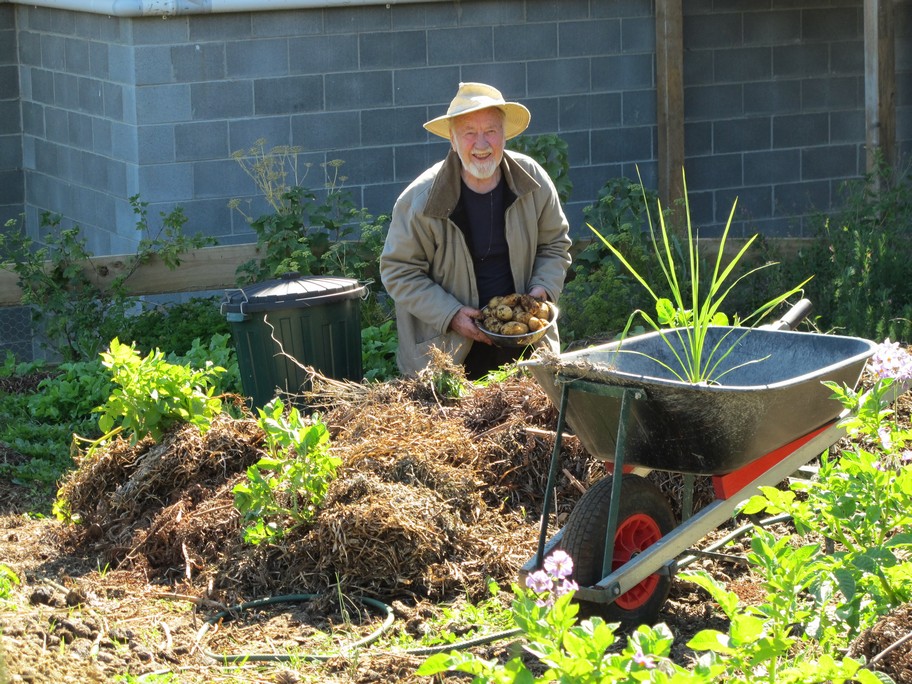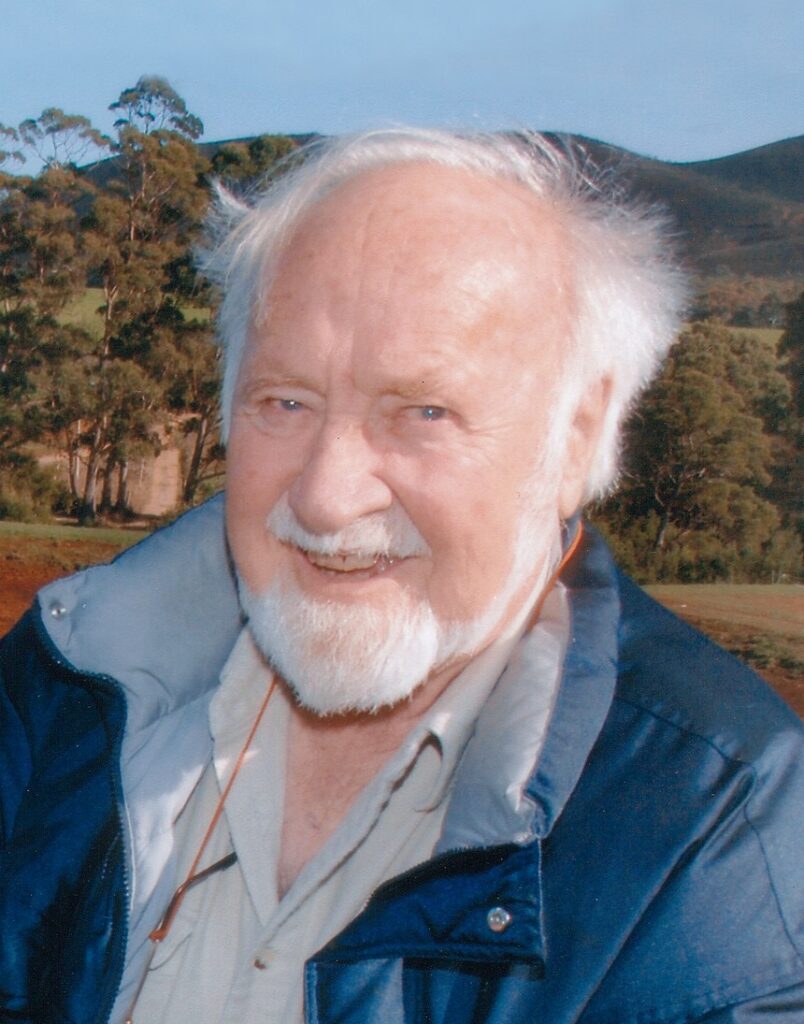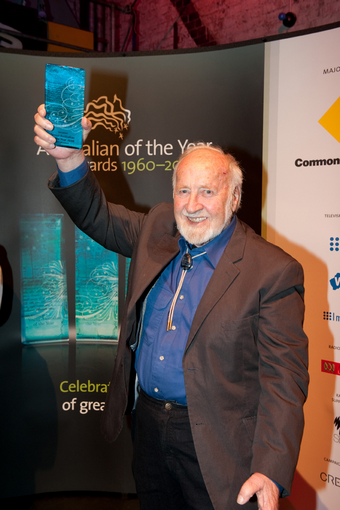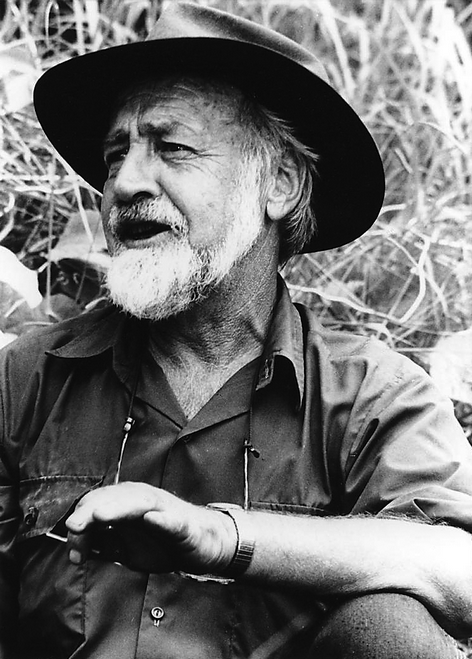Bill Mollison
"There is one, and only one solution, and we almost have no time to try it. We must turn all our resources to repairing the natural world, and train all our young people to help. They want to; we need to give them this last chance to create forests, soils, clean waters, clean energies, secure communities, stable regions, and to know how to do it from hands-on experience."
A Bit About Bill

F ounder and director of the Permaculture Institute, Bill was the most experienced Permaculture teacher and designer. He taught and developed projects from the Arctic through Sub-tropics and Equatorial regions of the planet.
There are few countries left in the world where he has not personally planted the seeds of Permaculture. The Peoples of the Pacific, South East Asia, South Africa and seven Amazonian language groups have been inspired by and acted on his teachings, embracing Permaculture as a dynamic tool. He gave courses in the drylands and developed projects with Native Americans, Indigenous Australians, tribal women of the Deccan, Kalahari, San groups and Pima people of the Sonora.
In the USA, Europe and Scandinavia, Bill lectured and helped to develop ecological designs for urban and rural properties, including many city-farms and CSA’s (Community Supported Agriculture).
"A s a child I lived in a sort of dream, and I didn't really awaken until I was about twenty-eight years old. I spent most of my early working life in the bush or on the sea. I fished and hunted for my livelihood. It wasn't until the 1950's that I noticed large parts of the system in which I lived were disappearing. First, fish stocks became extinct. Then I noticed the seaweed around the shorelines had gone. Large patches of forest began to die. I hadn't realised until those things were gone, that I'd become very fond of them; that I was in love with my country.
This discovery shifted the emphasis of my work in the late 1960s. This led to the development of the Permaculture Concept, a strategy which focuses on sustainable design for urban and rural properties. Permaculture, or PERMAnent CULTURE, is the conscious design of agriculturally-productive ecosystems and energy conserving settlements which have the resilience, dynamic stability and diversity of natural systems, like forests or grasslands. Such systems provide for their own needs, do not pollute or exploit, and are therefore sustainable in the long term.
The impetus for all the work I do has been the desire to leave our children gardens, not deserts. I see the great challenge of sustainable agriculture is to produce the food and fibre needed, while sustaining fertile soils, maintaining supplies of clean water, and protecting and enhancing biological diversity and the health of ecosystems. Societies can meet this challenge by supporting vital ecosystems, farmers in their roles as producers and stewards, and urban conservation groups."
- Bill Mollison

“The greatest change we need to make is from consumption to production, even if on a small scale, in our own gardens. If only 10% of us do this, there is enough for everyone. Hence the futility of revolutionaries who have no gardens, who depend on the very system they attack, and who produce words and bullets, not food and shelter.”
- Bill Mollison


A wards won by Bill
2010 TAS Senior Australian of the Year
1999 Australian Icon of the Millennium in the field of Ecology - one of 45 Awarded by the Australian Broadcasting Corporation in recognition of a visionary, and for contribution to his field of expertise.
1996 Steward of Sustainable Agriculture, U.S.A. Eco-Farm Conference, Asilomar, California, U.S.A.
1994 The Banksia Environmental Award Australia. Awarded for the promotion sustainable systems worldwide.
1993 Outstanding Australian Achiever Award. Awarded by the National Australia Day Council.
1991 Vavilov Medal Moscow, Russia. Inaugural award by the Russian Academy for contributions to sustainable agricultural and community systems.
1991 Member of the Russian Academy of Agricultural Science. First foreigner to be so honoured.
1989 Reconocimiento Mexico. Awarded by the Governor of Sonora, Mexico for work with poor urban, and rural campesinos.
1989 Honorary Fellow of the Schumacher Society, Surrey, U.K. Delivered Annual Schumacher Lecture.
1988 Tree Tax Award, Holland. Given by De Twaalf Ambachten for initiating a tree tax on all Permaculture publications.
1981 Right Livelihood Award. This award honours people working on practical and exemplary solutions to the social and environmental problems facing the world. (referred to as the alternative Nobel prize).


